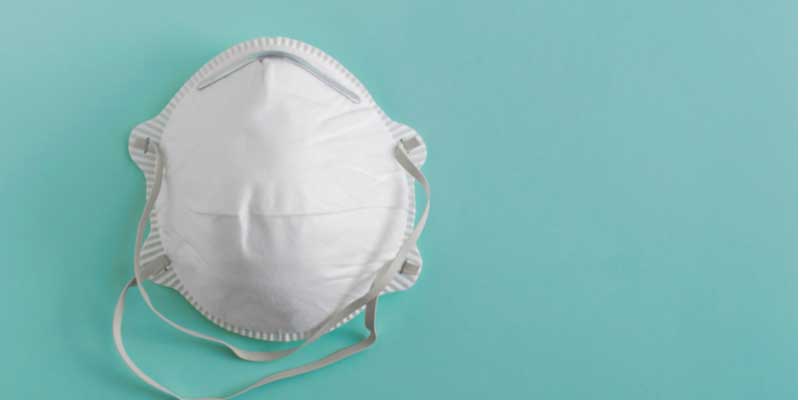The economic shutdown caused by the coronavirus has caused 20.5 million Americans to lose their jobs in April alone. This led to an unemployment rate of 14.7% for the month of April (reported May 8th), the highest unemployment this country has seen since 1936. Thankfully the U.S. government has been responsive and quickly passed the CARES Act. Continue reading to see how the CARES Act can offer you relief from your student loans in this time of uncertainty.
Administrative Forbearance From March 13, 2020 to Sept 30, 2020
All federal student loans have been automatically placed into an administrative forbearance from March 13 until September 20. A forbearance is a pause of your student loans, which typically accrues interest during this period. Due to the coronavirus pandemic, the Department of Education has reduced interest rates on some federal student loans to 0% through Sept 30th, 2020. So, there will be no interest accruing on your federal student loans during this forbearance
0% Interest Rate on Federal Student Loans
As mentioned previously, there will be a 0% of interest applied to federal student loans from March 13th, 2020 until September 30th, 2020. It’s currently unknown what will happen after September 30th. It’s possible they will extend the forbearance and 0% interest rate period if the economy and virus do not show improvements.
Which Loans Have 0% Interest?
Here are the loan types which have automatically adjusted to the 0% interest rate:
- Defaulted and nondefaulted Direct Loans
- Defaulted and nondefaulted FFEL Program loans
- Defaulted and nondefaulted Federal Perkins Loans
- Defaulted HEAL loans
This applies only to the loans which are federal. Some loans are owned by private lenders, or the institution which you attended. Those loans are not eligible for the 0% interest rate adjustment. If you aren’t sure if your loans are federal or private, contact your lender to find out. You can use studentaid.gov to find out who your loan servicer is.
Pause on Wage Garnishment and Collections
On March 25th, The U.S Department of Education released a bulletin stating that the Department will stop all collection actions against student loan borrowers. This goes on to include wage garnishments.
“These are difficult times for many Americans, and we don’t want to do anything that will make it harder for them to make ends meet or create additional stress,” said Secretary DeVos. “Americans counting on their tax refund or Social Security check to make ends meet during this national emergency should receive those funds, and our actions today will make sure they do.”
The pause on wage garnishments requires the employer to make the change to the borrowers paycheck. If your employer has not made that change, you should request them to do so directly.
If you were previously in a paying arraignment with a collections agency, you are advised to contact that Department of Educations Default Resolution Group at 1-800-621-3115 (TTY for the deaf or hearing-impaired 1-877-825-9923).
How Coronavirus Impacts Student Loan Forgiveness
With the suspension of payments through September 30, 2020 many borrowers are left wondering what will happen with their student loan forgiveness. Currently, here is what is known:
- Payments that are in forbearance will continue to count towards your income-driven forgiveness plan.
- Payments that are in forbearance will continue to count towards your public service loan forgiveness as long as you meet the other qualifying payment requirements.
Private Student Loan Relief For Coronavirus Impact
If you have private student loans you will need to look into your lenders individual policy during this time. Fortunately many private student loan lenders have offered relief. Here are some of the lenders we work with and their policies:
- Earnest – Three months of postponed payments, through a disaster forbearance, to qualified clients who request it.
- CommonBond – If you are unable to make payments during the COVID-19 outbreak, you can take advantage of CommonBond’s natural disaster forbearance, which allows payments to be paused for the duration of the national emergency.
- LendKey – LendKey is a servicer that works with many lenders, each with their own policies. Reach out to care@lendkey.com for more information if you refinanced with LendKey.
- CollegeAve – CollegeAve is offering a Disaster Forbearance program that temporarily suspends required payments on College Ave student loan(s) for three consecutive months.
Frequently Asked Questions
Can I continue to make payments during the administrative forbearance?
Yes, you can continue to make your normal payment during the forbearance period. You may also choose to pay less if you desire. Your payment should be applied directly to the principal of your loan if you have no outstanding interest on the loan. This may be a good time for you to try and pay down your loan.
I was paying in an Income-Driven Plan but I lost my job. What can I do?
If you were on an IDR prior to covid19 and lost your employment, you can recalculate your monthly paying by going to studentloans.gov.
How will I know when I should start making payment again?
The administrative forbearance is set to expire on September 30th, 2020. Your servicer should contact you prior to then to notify you of an upcoming payment due. In the event that does not happen, you should reach out to them directly to find out your payment due date.


